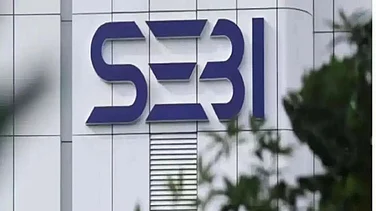, s
t tinue
Sid Talwar, Co-Founder & Partner, Lightbox shares with Pallavi Chakravorty the reasons behind the sudden fund rush into India’s startup ecosystem, what investors look for in new-age companies and whether the dream run will continue.
It has been raining unicorns in India with several US-based VCs pumping in billions of dollars. Can this rush be attributed to quantitative easing (QE) in the US? And, is it sustainable?
If it was only the funds from the US and only because of QE, I would be questioning its sustainability. But, that is not the case. There are all kinds of pools of capital from all over the world that are coming to India. And, it is because of a multitude of factors. First, there is a lot of money that may have gone to China but didn’t. Second, the Indian technology stocks have now started going public and the American funds have been using that entry point to understand India better. And third, our ability to get noticed globally has increased.
Plus, there is a lot of money that is coming from within India. Individuals and family offices with a high net worth are investing hundreds of millions of dollars. Add to that the traditional business houses which are heavily investing in the startup ecosystem. Then, you have the public market investors, who traditionally used to put money in absolutely different asset classes, suddenly investing pre IPO.
About sustaining the momentum, I believe we have just begun to scratch the surface of most of these pools of capital. It doesn’t mean that it is going to continue to grow at this pace but it is not, in the true sense of the word, a ‘bubble’.
Where is the startup investor ecosystem going from here?
It takes time for any ecosystem to develop and we are still very far, as compared to the US and China, in the startup space. With the maturing of the ecosystem, you start seeing participation from a more specialist kind of investors who have the experience in specific kinds and rounds of financing. As of now, we follow the US blueprint but it might get accelerated because there is global infusion coming into the country. With time, the ecosystem is going to get stronger, the founders are going to get stronger, and the quality of startups will improve as will the quality of the investor base.
What about the startups’ accountability to its investors?
The startups that we have invested in have been overtly proactive in making available whatever information we want. They have provided us with internal auditors and reports coming to investors, monthly and bi-weekly reviews apart from making all their dashboards available to us. In some cases, the investors themselves choose not to be informed or put pressure so it is up to them. It is the shareholders’ agreements that hold them accountable.
How important has the profitability roadmap become for investors? How soon do they now expect a startup to get there?
What we look for is strong unit economics. A company is built over many years and we are not necessarily there for their entire journey. But the founders have been there for a very long time. In fact, we look for founders who are long term-driven. At one point of time, they may be concentrating on something else and there will be times when they will concentrate on profitability. Irrespective of when we invest, we are looking for companies that are trying to grow with pure unit economics.































